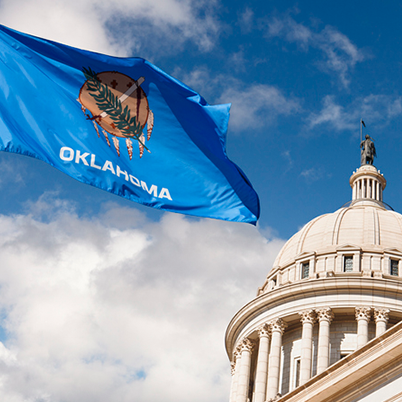Video Storytelling: Medicaid Expansion Can Help Missouri Combat the COVID-19 Crisis
07.01.2020
Note: Be sure to click on the links to see Missourians explain why the state needs to expand Medicaid.
Medicaid Expansion Can Help Missouri Combat the COVID-19 Crisis
Medicaid expansion has never been more important than it is right now. In the midst of a global pandemic and a devastating economic downturn, Missourians need access to health care.
Missouri has one of the most restrictive Medicaid programs in the country, leaving out most non-disabled and non-pregnant adults. Medicaid expansion would change that by extending coverage to over 230,000 Missourians at a critical time. With the state’s uninsured rate rising due to loss of job-based insurance during the COVID-19 crisis, many recently unemployed individuals have no good options for staying covered. Medicaid expansion is the lifeline they need.
The state’s economy would also benefit from over a $1 billion in federal funds brought into the state during an economic downturn, ensuring compensation for our frontline health professionals. Missouri has a choice — expand now or combat the COVID-19 crisis with both hands tied.
Missourians can make expansion a reality with the passage of Amendment 2 on August 4, 2020.
Why Expansion Now?
To date, most states have expanded their Medicaid programs to cover low-income adults with incomes up to 138% of the federal poverty level. In those states, substantial evidence[1] indicates that expansion reduced the number of uninsured people, improved access to care, increased access to substance use treatment and mental health services, and lowered overall state expenditures — benefits that are even more crucial during the COVID-19 health and economic crisis.
In Missouri, expansion will help keep our rural hospitals open, bring federal tax dollars to the state, and help hard-working Missourians and their families gain health coverage.
What is the Coverage Gap?
In Missouri, Medicaid is available only to adults with dependent children whose incomes are below 17% of the federal poverty level[2] — about $300 per month for a family of three. Non-disabled adults without dependent children are simply ineligible for Medicaid, regardless of their income. Medicaid expansion offers a pathway to affordable, high-quality health care for Missourians who would otherwise have no way to get health insurance because they are stuck in the “coverage gap.” That gap includes people who don’t get insurance through their jobs or don’t earn enough to qualify for subsidized coverage on the health insurance marketplace but have income too high to qualify for Medicaid.
Most other states have closed the coverage gap. But here in our state, as the COVID-19 crisis worsens, thousands more Missourians are falling into the coverage gap as they lose their jobs or have their hours reduced.
How Does COVID-19 Exacerbate the Coverage Gap?
Many Missourians are losing their jobs due to the current economic downturn and are therefore losing their health insurance. Without insurance, people are less likely to seek care when they first feel sick, which runs counter to what we need to keep our communities healthy during the COVID-19 crisis. An additional 119,000 Missourians who lost their job-based insurance will fall into the coverage gap by January 2021.[3]
Whether due to an unexpected job loss or a catastrophic event, every Missourian is one accident or illness away from being uninsured without Medicaid expansion. Expansion is one of the best tools a state has to ensure continuity of coverage during volatile times.
How Does Expansion Improve Health?
Medicaid expansion improves health outcomes. These improvements have been documented in other states, including neighboring or nearby states of Arkansas, Kentucky, and Louisiana.[4] Benefits include increased use of primary care,[5] increased access to substance use treatment and mental health services,[6] increased filling of prescriptions for chronic diseases,[7] and decreased mortality,[8] to name a few.
In contrast, without expansion, upstream use of primary care[9] is postponed in favor of downstream use of more expensive emergency department or inpatient care after health conditions worsen. Without Medicaid expansion, people are dying[10] who could be alive if they had health insurance. For example, they delay screenings that lead to early-stage cancer diagnoses and treatment or simply aren’t getting treatment for a drug problem or depression.[11] And, without expansion, individuals lack the security of knowing their basic health needs will be covered.
Furthermore, Medicaid expansion is a good budget deal for Missouri. Medicaid expansion brings federal funds into the state for 90% of the cost of services that would otherwise have been covered completely by the state or absorbed by providers through uncompensated care. In fact, research shows that the small nominal cost for states to expand Medicaid was offset by savings from reduced spending on state programs such as those for the uninsured or for behavioral health services.[12]
What are the Financial and Economic Implications of Expansion?
Medicaid expansion is an effective way to jump-start Missouri’s economy. In the first year of Medicaid expansion, participating states saw job growth at 2.4%, while non-expansion states saw 1.8% job growth.[13] Medicaid expansion is particularly important for rural hospitals during the COVID-19 pandemic; being in a Medicaid expansion state decreases the likelihood of a rural hospital closing by 62%.[14] The potential financial protections for Missourians are also critical. A trip to the emergency room would no longer put Missourians at risk of bankruptcy.[15] And coverage means people seek necessary care that keeps the community healthy, like COVID-19 testing and treatment.
Missouri: Expand Now
Medicaid expansion has established itself as a cost-effective coverage option for many states, especially during the current economic downturn. As the COVID-19 crisis worsens, it will only become more important for Missouri to join the 37 other states with Medicaid expansion. Missourians can make expansion a reality with the passage of Amendment 2 on August 4, 2020.
Click here to view the video version of this analysis.
Click here to view the full versions of each storyteller video.
[1] Guth, M., Rachel Garfield, and Robin Rudowitz, “The Effects of Medicaid Expansion under the ACA: Updated Findings from a Literature Review,” Kaiser Family Foundation, May 2020. https://www.kff.org/medicaid/report/the-effects-of-medicaid-expansion-under-the-aca-updated-findings-from-a-literature-review/
[2] United States Department of Health and Human Services, “Medicaid, Children’s Health Insurance Program, & Basic Health Program Eligibility Levels,” April 2019. https://www.medicaid.gov/medicaid/national-medicaid-chip-program-information/medicaid-childrens-health-insurance-program-basic-health-program-eligibility-levels/index.html
[3] Garfield, R., et al., “Eligibility for ACA Health Coverage Following Job Loss,” Kaiser Family Foundation, May 2020. https://www.kff.org/report-section/eligibility-for-aca-health-coverage-following-job-loss-appendix/
[4] Graves, J.A., et al., “Medicaid Expansion Slowed Rates Of Health Decline For Low-Income Adults In Southern States,” Health Affairs, January 2020. https://www.healthaffairs.org/doi/full/10.1377/hlthaff.2019.00929?journalCode=hlthaff
[5] Sommers, B.D., Robert J. Blendon, and E. John Orav, “Changes in Utilization and Health Among Low-Income Adults After Medicaid Expansion or Expanded Private Insurance,” JAMA Internal Medicine, October 2016. https://jamanetwork.com/journals/jamainternalmedicine/fullarticle/2542420
[6] United States Government Accountability Office, “Options for Low Income Adults to Receive Treatment in Selected States,” June 2015. https://www.gao.gov/assets/680/670894.pdf
[7] Ghosh, A., Kosali Simon, and Benjamin Sommers, “The Effect of Health Insurance on Prescription Drug Use Among Low-Income Adults: Evidence from Recent Medicaid Expansions,” Journal of Health Economics, January 2019. https://www.sciencedirect.com/science/article/pii/S0167629617300206
[8] Swaminathan, S., et al., “Association of Medicaid Expansion With 1-Year Mortality Among Patients With End-Stage Renal Disease,” JAMA, December 2018. https://www.ncbi.nlm.nih.gov/pubmed/30422251
[9] Biener, A., Samuel Zuvekas, and Steven Hill, “Impact of recent Medicaid expansions on office-based primary care and specialty care among the newly eligible,” Health Services Research, October 2017. https://onlinelibrary.wiley.com/doi/abs/10.1111/1475-6773.12793
[10] Lee, A., et al., “Changes in cancer mortality rates after the adoption of the Affordable Care Act,” Journal of Clinical Oncology, May 2020. https://meetinglibrary.asco.org/record/185990/abstract
[11] Soni, A. “Effect of Medicaid Expansions of 2014 on Overall and Early-Stage Cancer Diagnoses,” American Journal of Public Health, February 2018. https://ajph.aphapublications.org/doi/abs/10.2105/AJPH.2017.304166
[12] Sommers, B. and Jonathan Gruber, “Federal Funding Insulated State Budgets From Increased Spending Related To Medicaid Expansion,” Health Affairs, May 2017. https://www.healthaffairs.org/doi/abs/10.1377/hlthaff.2016.1666
[13] Jaspen, B., “Obamacare Jobs Grow Faster In Medicaid Expansion States,” Forbes, February 2, 2015, https://www.forbes.com/sites/brucejapsen/2015/02/20/obamacare-jobs-grow-faster-in-medicaid-expansion-states/#69db48afbc75
[14] Scott, D., “1 in 4 rural hospitals is vulnerable to closure, a new report finds,” Vox, February 18, 2020. https://www.vox.com/policy-and-politics/2020/2/18/21142650/rural-hospitals-closing-medicaid-expansion-states
[15] Brevoort, K., Daniel Grodzicki, and Martin Hackmann, “Medicaid and Financial Health,” National Bureau of Economic Research, November 2017. https://www.nber.org/papers/w24002?mod=article_inline
key resources



